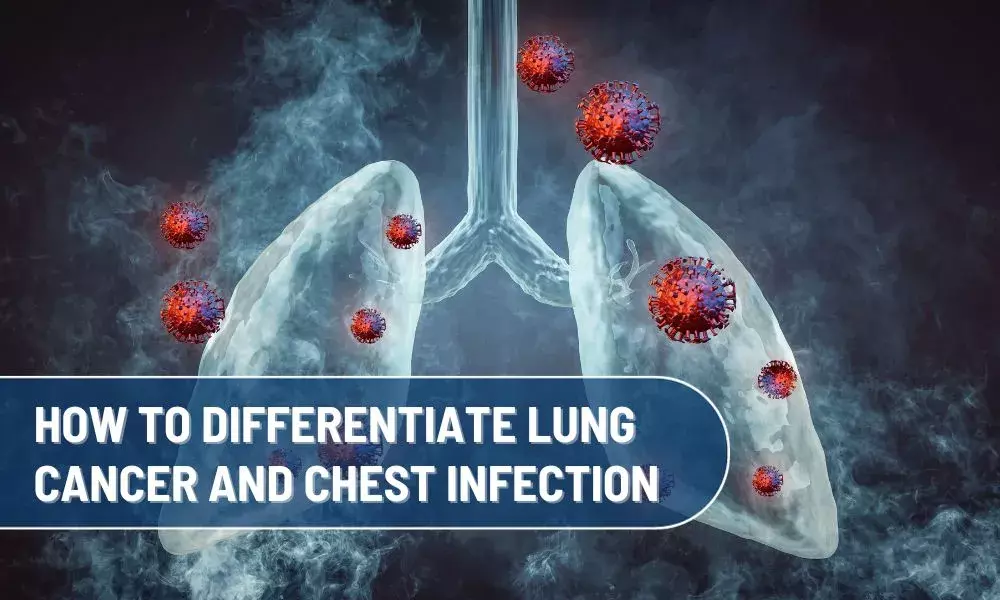November marks lung cancer awareness month. Lung cancer is increasingly becoming one of the leading causes of death worldwide. Often, people experience certain infection-like symptoms in the chest, and it becomes confusing to understand the symptoms, thereby delaying the treatment. This article defines how chest infection differs from lung cancer and the warning signs of lung cancer that one should be aware of!
Table of Content:
-
What are chest infections?
-
Identifying the cause
-
Knowing the symptoms
-
Duration of Discomfort matters!
-
Preventive Measures
What are chest infections?
A chest infection is an infection that exists in the lungs or airways. The main types of chest infections are pneumonia and bronchitis. Bacteria cause pneumonia, while viruses cause bronchitis. Both these infections may share the same symptoms as lung cancer.
Lung cancer is a type of cancer that originates in the lungs when cells begin to grow out of control. Here is how to differentiate between lung cancer and lung infection.
Identifying the cause
Lung infections are generally contagious. When an infected person coughs or sneezes, they launch tiny droplets of fluid containing the virus or bacteria into the air. This can be breathed in by others, putting them at risk of infection, too.
In the case of lung cancer, smoking is the number one cause, responsible for about 90 percent of lung cancer cases. Some people may also be at risk due to a family history of lung cancer.
Knowing the symptoms
Symptoms of chest infections may include:
-
Fast or difficult breathing
-
Coughing with brown or green-colored phlegm
-
Fever (sweating, shivering, chills)
-
Feeling unwell
-
Blue color around the lips (cyanosis)
-
Stomach pain
-
Chest pain
-
Headaches
Signs and symptoms of lung cancer may include:
-
A cough that does not go away or gets worse over time
-
Coughing up blood, even a small amount
-
Shortness of breath
-
Chest pain and Hoarseness
-
Losing weight without trying
-
Bone pain
-
Headache
-
Unexplained fatigue (tiredness)
Duration of Discomfort matters!
Most people recover from a chest infection in a matter of weeks. The key to determining if it is a chest infection or cancer-related symptoms is time. If symptoms such as cough persist for a longer period than three weeks or more, it is best to see a doctor to rule out any possibility of cancer.
The same applies to recurrent chest infections. Note that these signs do not necessarily mean it is a cancer. One must consult doctor for proper diagnosis.
Preventive Measures
Chest infection, respiratory diseases or lung cancer can be triggered by exposure to pesticides. It can cause respiratory pathologies like asthma, lung cancer, and chronic obstructive pulmonary disease [COPD. One must ensure to minimize exposure to pesticides, some ways may include:
-
Using non-chemical control methods to reduce or eliminate pest problems.
-
Use protective measures when handling pesticides.
-
Before applying a pesticide (indoors or outdoors), remove children, toys and pets from the area and keep them away until the pesticide has dried.
-
Remove or cover food during indoor applications.
-
Take precautions to keep the pesticide from drifting or running off into the food storage.
Lastly, to lower the risk of getting lung cancer, one must avoid smoking and second-hand smoke. Getting one’s home tested for radon is also vital. Additionally, one must follow health and safety guidelines at work to avoid carcinogens that may cause lung cancer.





